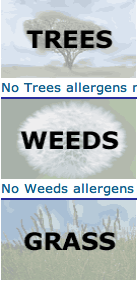Insect Sting Allergy
Almost 2 million people are exposed to insect stings each year. Of these there are annual 50 deaths from anaphylaxis. Symptoms usually area associated with swelling in areas other than the sting site, difficulty breathing, a sharp drop in blood pressure, hoarse voice or swelling of the tongue, dizziness, unconsciousness and cardiac arrest.
All these symptoms detailed above are a medical emergency, and prompt medical attention is required. A self-administered epinephrine (adrenaline) kit is of the utmost importance if previous episodes of anaphylaxis exist. About 60% of individuals with previous anaphylaxis with insect stings have a chance of recurrence with a repeat exposure. An allergist can also provide a preventive treatment called venom immunotherapy, allergy shot, which has been shown to help prevent future reactions by 97%.
Avoidance Techniques include:
- Avoid walking barefoot in the grass, where stinging insects forage.
- Avoid drinking from open soft drink cans, which stinging insects are attracted to and will crawl inside.
- Keep food covered when eating outdoors.
- Avoid sweet-smelling perfumes, hairspray and deodorants.
- Avoid wearing bright colored clothing with flowery patterns.
Your AAATS Board Certified Allergist is specially trained in managing and preventing future insect sting allergies. For further questions or to make an appointment please feel free to contact us.
